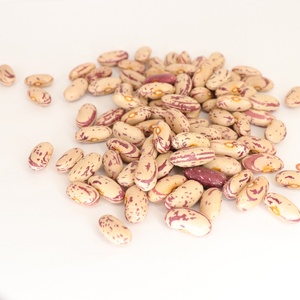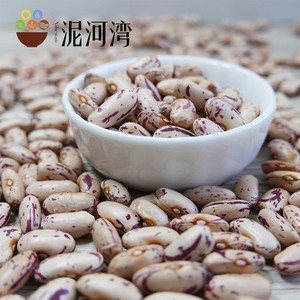
All categories
Featured selections
Trade Assurance
Buyer Central
Help Center
Get the app
Become a supplier

(1600 products available)



























peas beans pulses are a staple in the agricultural sector, particularly within the realm of legumes. Renowned for their nutritional value and versatility, they are cultivated and consumed worldwide. The popularity of peas beans pulses is attributed to their rich protein content and diverse culinary applications, making them an essential component of diets across various cultures. These legumes thrive in temperate climates and are often grown in rotations to improve soil health. Their adaptability to different soil types and climates allows peas beans pulses to be a reliable crop choice for farmers aiming to maximize yield and sustainability.
The world of peas beans pulses encompasses a wide array of varieties, each with distinct characteristics and uses. Common types include garden peas, snow peas, and snap peas. Garden peas are typically harvested when they are fully mature, boasting a sweet flavor ideal for canning and freezing. Snow peas are known for their edible pods and are often used in Asian cuisine for stir-fries and salads. Snap peas, a hybrid of garden and snow peas, offer a crunchy texture and are favored for fresh consumption. Each variety of peas beans pulses offers unique qualities that cater to specific culinary needs, ensuring their versatility in both raw and cooked forms.
peas beans pulses serve numerous functions that extend beyond mere consumption. They are an excellent source of plant-based protein, making them a valuable dietary component for vegetarians and vegans. Rich in vitamins and minerals, peas beans pulses contribute to improved health by providing essential nutrients such as vitamin C, vitamin K, and folate. Their high fiber content aids in digestion and promotes satiety, supporting weight management efforts. Furthermore, peas beans pulses play a vital role in agriculture as nitrogen-fixing plants, enhancing soil fertility and reducing the need for chemical fertilizers. Their environmental benefits underscore their significance in sustainable farming practices.
When it comes to the nutritional profile, peas beans pulses are packed with beneficial ingredients. They contain a balanced composition of carbohydrates, proteins, and fats, making them a wholesome food choice. The protein content in peas beans pulses is particularly noteworthy, with levels that can reach up to 9 grams per cup. Additionally, they are low in calories and free from cholesterol, appealing to health-conscious consumers. The presence of antioxidants such as flavonoids and carotenoids in peas beans pulses contributes to their health-promoting properties, offering protection against chronic diseases. Their nutrient density makes them a valuable addition to diverse dietary regimens.
The culinary versatility of peas beans pulses is impressive, allowing them to be utilized in a multitude of dishes. Fresh peas beans pulses can be consumed raw, added to salads, or used as a garnish. Cooked peas beans pulses are popular in soups, stews, and casseroles, providing a hearty texture and flavor. They can also be pureed into dips and spreads, serving as a nutritious alternative to traditional options. For those interested in preserving, peas beans pulses can be canned or frozen, maintaining their nutritional integrity for extended periods. Experimenting with different cooking methods and recipes can enhance the culinary experience with peas beans pulses, showcasing their adaptability and appeal.
When selecting peas beans pulses, it's important to consider several factors to ensure you choose the right variety for your needs. First, consider the intended use of the peas. Different types of peas beans pulses are better suited for specific culinary applications. For example, snow peas are excellent for stir-fries and salads due to their edible pods, while garden peas are ideal for freezing and canning. The growing conditions and climate in your region will also influence the type of peas beans pulses you should select. Some varieties thrive in cooler temperatures, while others are more tolerant of heat. It's essential to research and choose peas beans pulses that aligns with your culinary and agricultural requirements.
Another critical consideration is the maturity and harvest time of peas beans pulses. Some peas are harvested when fully mature, offering a sweeter taste, while others are picked earlier for their tender texture. Understanding the growth cycle and harvest period of your chosen peas beans pulses variety can help optimize yield and quality. Additionally, consider the storage and preservation methods that best suit your needs. While fresh peas beans pulses provide optimal flavor and texture, freezing or canning can extend their shelf life and maintain nutritional value. Properly selecting and storing peas beans pulses will ensure you enjoy the best quality and flavor in your dishes.
To maintain the freshness of peas beans pulses, it's advisable to store them in the refrigerator in a perforated plastic bag or an airtight container. This helps retain moisture and prolongs shelf life. For long-term storage, blanching and freezing peas beans pulses is an effective method to preserve their nutritional content and flavor.
Ripe peas beans pulses typically have a vibrant green color and a firm texture. They should be plump and filled out, indicating maturity. It's best to taste a few peas from different plants to ensure they have reached the desired sweetness and tenderness before harvesting.
peas beans pulses thrive in well-drained, loamy soil with a neutral pH level. Enriching the soil with organic matter, such as compost, can enhance fertility and improve growth conditions. It's also important to ensure adequate sunlight and consistent watering for optimal yield.
Yes, peas beans pulses can be successfully grown in containers, making them suitable for small spaces and urban gardening. Choose a deep container with proper drainage and fill it with quality potting soil. Regular watering and adequate sunlight exposure are essential for healthy plant growth.
Common pests that target peas beans pulses include aphids, pea weevils, and slugs. Implementing integrated pest management strategies, such as using organic pesticides or introducing beneficial insects, can help control these pests. Diseases like powdery mildew and root rot may also affect peas beans pulses, so proper spacing and crop rotation can minimize the risk of infection.